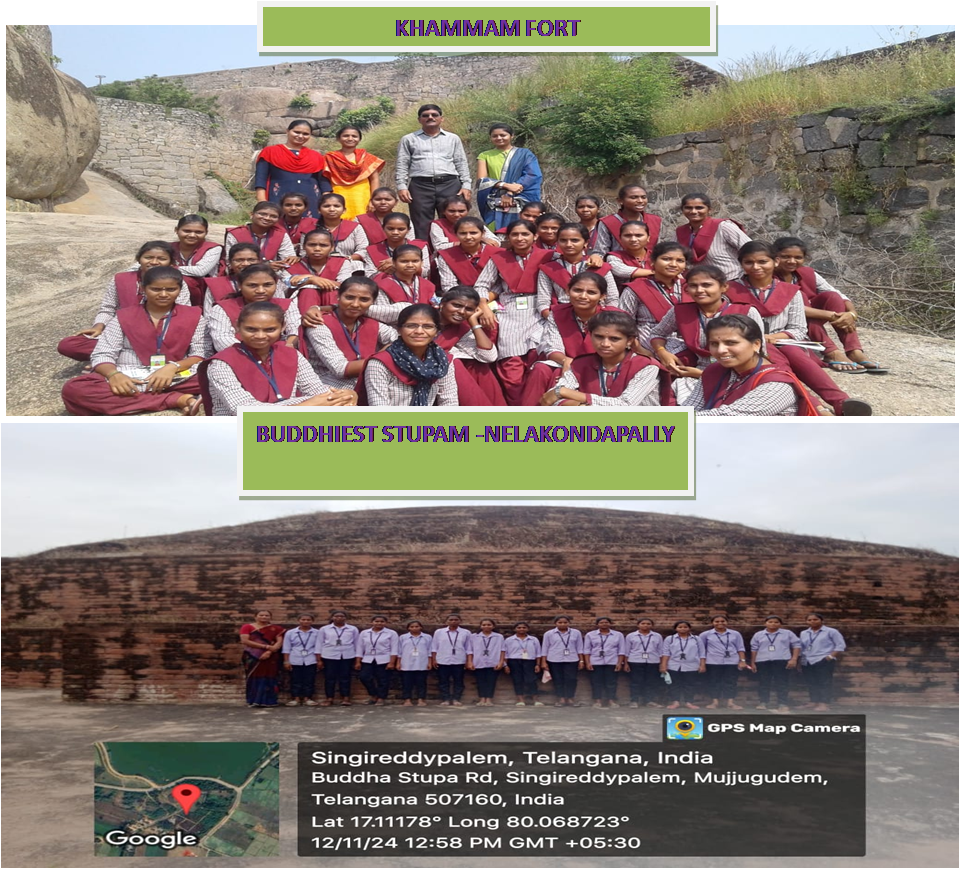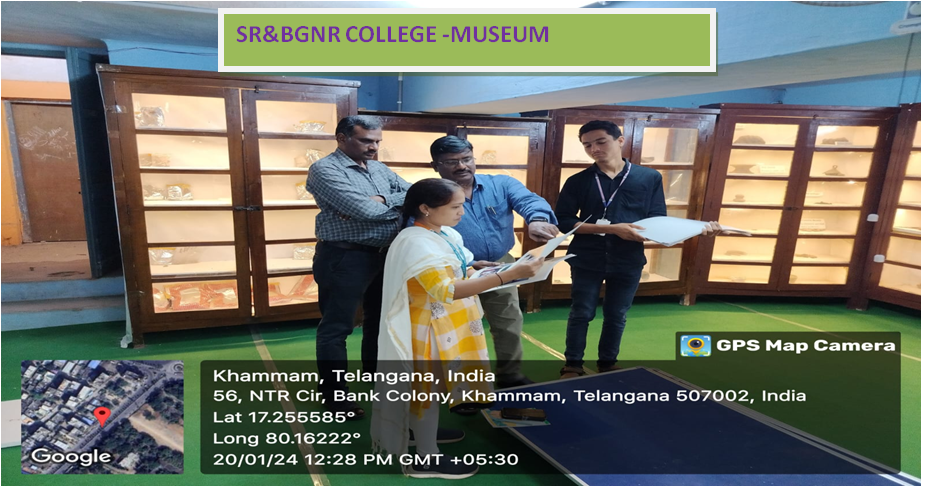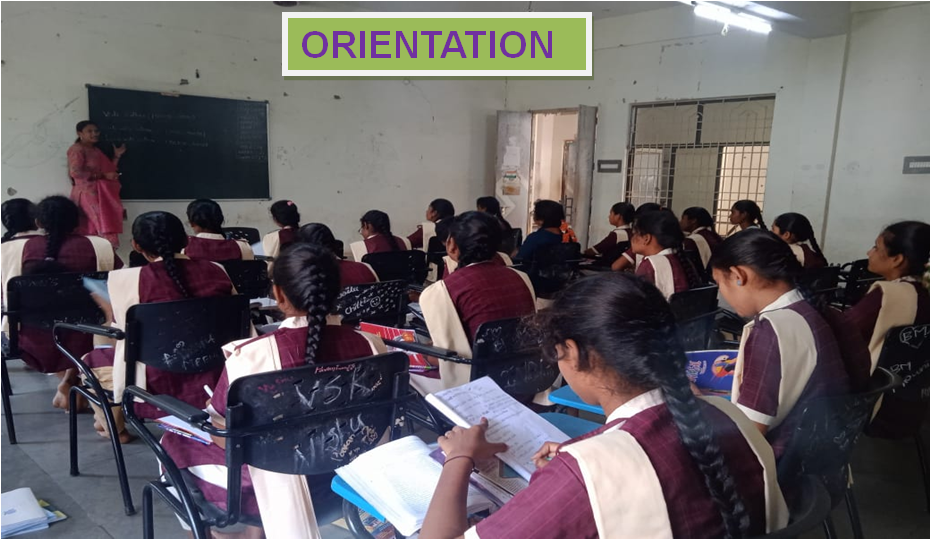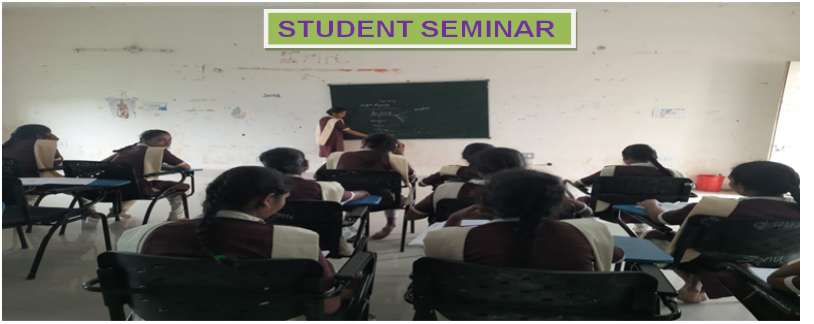Departments - HISTORY - BEST PRACTICES
DEPARTMENT OFHISTORY
Best Practices
The Department focuses on developing students’ interest in historical thinking and research. The best practices of the Department are aimed to enable students to creatively engage in social issues by providing them a historical perspective. The objective of the Department’s best practice is to make the students good professional and committed citizens who play crucial roles in the future of the society in which they are studying. Consequently, the best practices of the Department provide teachers and students opportunities to take part in the effort of making India a knowledge society.
The following best practices of the Department help the student to understand the fundamentals of their subject and the social responsibilities of their institution. These programmes allow them to gain a well-informed direction to plan their future career. Therefore, we focus on continuous improvement of knowledge, skill and spirit of innovations. The best practices of the Department of History cater to the pedagogic requirements, the local context of the learning process, and the social and cultural backgrounds of learners.
Objectives of the Best Practices
▪ Promotion of universal values among students. In today’s world, where majority of the people are pursuing only self-interests persistently, the Department recognizes the need to inculcate universal values among the students like promotion of truth, selflessness, righteousness etc.
▪ To be nourished and nurture the ethical values in history.
▪ To uphold the historical values.
▪ To inculcate the love and reverence for the historical sites and monuments.
▪ To create social awareness and accountability.
▪ To promote research activities related with skills.
▪ To motivate the students to have healthy competitions
. ▪ To encourage students to work together.
▪ To ensure that the students reach their goal.
▪ To help students to find identity, meaning and purpose in life through various social activities.
▪ Allow students to develop strong internal values and confidence Inspire students to become better citizens.
To implement the best practices, the Department has adopted the following platforms, they are like:
• Students’ Semnar
• Usage of Seminar Library
• Students’ Excursion
• Tutorial/Projects given to the students
• Effective mentor-mentee system
• Encouraging peer learning among the students.
• Exposure to the students to advanced learning and skills through expert lectures, seminars, workshops etc.
• Academic, personal and psycho-social counselling to the students.
• Conducting value added courses to enhance the employability and skills of the students
• Check in regularly with students about their concerns and challenges.
Teaching methods
- Lecture method / interactive method / computer-assisted learning /experiential learning /seminars and others used like
- Group discussions/ problem solving sessions/ demonstrations /study tours / Internet Based Learning to all students for their use and preparation of resource material.
Evaluation methods
- Continuous evaluation of the students
- Class room test, Home Assignments, Objective and MCQ test
Best practice – 1
Title: Heritage Walks
Heritage walks to the ancient, medieval, and modern monuments of Khammam. and its surroundings is the best opportunity for students to develop interest in history. Opportunities to understand the institutional and social mechanisms of preserving the heritage sites provide them a chance to think about the contemporary societies’ historical consciousness. The faculty members of the Department explain the significance of the monument to develop their interest in history. Heritage walks allow history students to understand the cultural specificities of the urban space where they live and study.The heritage walks are also successful in generating interest among students to preserve our heritage.

Best practice – 2
Title: Study visits to Museums and Archives
The Department of History organizes educational trips to the National Museum of India (Delhi) and to the National Archives of India (Delhi). These study trips allow the students to understand the art of collecting objects with historical relevance, and the way museums classify and preserve them. Visits to the National Archives of India help history students to understand the process of acquiring historical documents and an archivist classifies historical documents.

Best practice – 3
Title: Classes and discussions based on visual sources
The Department promotes the use of visual sources to make studying history a dynamic experience for the students. Therefore, the Department conducts screenings of films and historical documentaries to encourage students to integrate visual culture as an integral part of historical research. The use of visual sources allows students to understand a society’s historical consciousness, especially through movies dealing with historical themes. The visual sources enable students to think creatively about the past. We also integrate software based classroom applications to collectively watch documentaries and webinars.
Best practice – 4
Title: Orientation to Freshers
The Department organises orientation sessions for the first year students to familiarize them to the university system, the department, and their senior students. The orientation programme serves as a bridge between the first year undergraduate students and institution and makes students who are coming from varied academic and social backgrounds feel comfortable in the new surroundings of the university and the city. The orientation session also introduces students to the rules and regulations of the college. This is an opportunity for students to learn about the course structure, semester system, the University academic calendar, and other academic as well as co-curricular facilities provided by the institution.

BEST PRACTICE-5
STUDENTS’ SEMINAR
The Department of History organized a students’ seminar under the supervision of P.SUNITHA DL HISTORY. The students came from the sixth semester where an entire paper in the core course is dedicated to European history, post-World War II. The topic selected was Cold War: Its Different Aspects.
GLIMPSE OF STUDENTS’ SEMINAR

